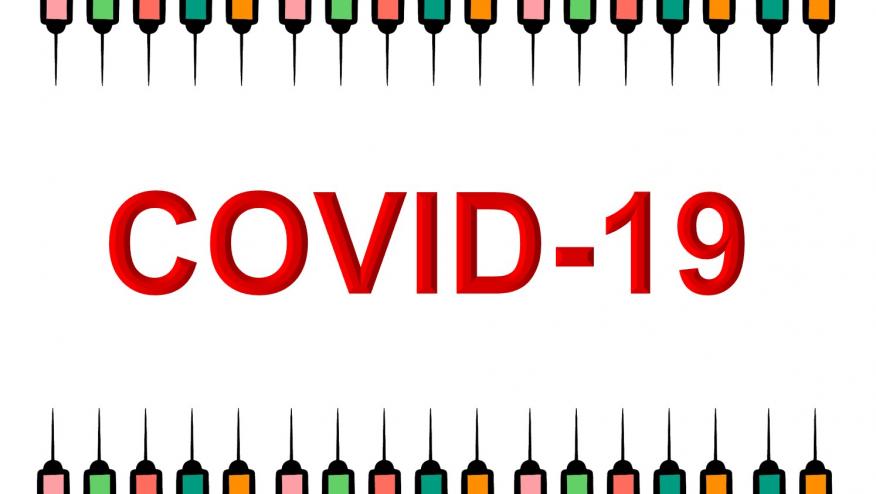IL-6 Inhibitors May Benefit COVID-19 Infection Save

In the last few days there have been encouraging "preliminary" reports that IL-6 inhibition by either tocilizumab or sarilumab may be efficacious in patients with severe coronavirus infections.
Sarilumab (Kevzara)
Sanofi and Regeneron have issued a press release on their phase 2/3 adaptive-designed trial of sarilumab given to patients hospitalized with COVID-19. An Independent Data Monitoring Committee (IDMC) has recommended that the study continue to a larger Phase 3 trial only, but with adjustments.
Their study has thus far shown that when "severe" and "critical" COVID-19 patients are given either high dose or low dose sarilumab, only the more advanced “critical” group showed improvement (clinical, death, ventilation, discharg) compared to those treated with placebo or lower dose sarilumab (see Table).
A table shows results from 358 hospitalized COVID patients who were randomized to receive placebo or intravenous higher dose sarilumab (400 mg) or lower dose sarilumab (200 mg) . Patients were categorized at baseline as either “severe” (28%), “critical” (49%) or “multi-system organ dysfunction” (MSOD) (23%). The difference between “severe” and “critical” was the requirement for mechanical ventilation or high-flow oxygenation or ICU treatment in the latter group.
The primary endpoint was the change in C-reactive protein (CRP) levels.
Analysis of clinical outcomes in the Phase 2 trial were exploratory and pre-specified to focus on the “severe” and “critical” groups. In the preliminary Phase 2 analysis, Kevzara had no notable benefit on clinical outcomes when combining the “severe” and “critical” groups, versus placebo. Regardless of treatment assignment, approximately 80% were discharged, 10% of patients died and 10% remain hospitalized in Phase 2.
Based on some positive trends seen in the "Critical" group, the phase 3 trial will be amended to enroll only “critical” patients and they will discontinue lower-doses (200 mg) and all new patients will receive either higher-dose sarilumab (400 mg) or placebo
No new safety findings were observed for Kevzara use in COVID-19 patients
The Phase 2 numerical results are presented in the table below, including exploratory clinical endpoints for the “critical” group, which is the focus of the ongoing Phase 3 trial. The ongoing portion of the Phase 3 trial, which is continuing to enroll, currently includes more than 600 patients in the “critical” group. Regeneron and Sanofi remain blinded to the ongoing portion of the Phase 3 trial and expect to report results by June.
U.S. Kevzara Trial – Phase 2 Efficacy Results
| Placebo | Kevzara 200 mg | Kevzara 400 mg | |
| PRIMARY ENDPOINT (REDUCTION IN C-REACTIVE PROTEIN) | |||
| (n=77) | (n=136) | (n=145) | |
| CRP % change from baseline | -21% | -77% | -79% |
| EXPLORATORY CLINICAL ENDPOINTS IN “CRITICAL” GROUP | |||
| (n=44) | (n=94) | (n=88) | |
| Died or “On a ventilator” | 24 (55%) | 43 (46%) | 28 (32%) |
| Died | 12 (27%) | 34 (36%) | 20 (23%) |
| On a ventilator | 12 (27%) | 9 (10%) | 8 (9%) |
| Clinical improvement | 18 (41%) | 48 (51%) | 52 (59%) |
| Off oxygenation | 18 (41%) | 40 (43%) | 51 (58%) |
| Discharged | 18 (41%) | 37 (39%) | 47 (53%) |
In addition, a second trial in countries outside of the U.S. will study sarilumab in approximately 400 patients hospitalized with COVID-19 infection. This study is enrolling in Italy, Spain, Germany, France, Canada, Russia, Israel and Japan and the results are expected in the third-quarter of 2020.
Tocilizumab
Another Fearly, "preliminary" news report suggests that tocilizumab (Actemra) may benefit COVID-19 patients. An open-label study at the Assistance Publique-Hôpitaux de Paris evaluated tocilizumab in hospitalized moderately-to-severely ill patients with COVID-19 pneumonia.
Patients were enrolled if hospitalized for moderate or severe COVID-19 pneumonia. The primary endpoint was the combination of the need for ventilation (mechanical or non-invasive) or death on D14.Patients were randomized to received TCZ + standard-of-care (SOC) treatment (65 patients) or SOC alone (64 patients). The primary objective was met with TCZ treated patients having significantly fewer deaths or ventilation, compared to the SOC arm. There were no added more adverse when comparing TCZ treated to the control group.
The results will be submitted for later publication, but the " researchers and the sponsor felt obliged, from an ethical point of view, to communicate this information, while awaiting peer review while continuing the longer follow-up of these patients."










If you are a health practitioner, you may Login/Register to comment.
Due to the nature of these comment forums, only health practitioners are allowed to comment at this time.